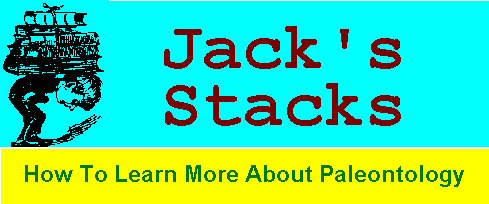
You may recall that Eldredge is a paleontologist and curator in the Department of the Invertebrates at the American Museum of Natural History. You may also recall that I reviewed his previous book, The Miner's Canary, last year and didn't much care for it on grounds that the topic was somewhat out of my area of interest. No such problem with this one. I purchased Reinventing Darwin because it seemed that it would provide a lay explanation of "punctuated equilibria", an alternate theory of evolution proposed in 1972 by Eldredge and Stephen J. Gould. This was something that I wanted to learn more about and this time what I got was something more.
Eldredge refers to a metaphorical "high table" in the subtitle and throughout the book. One can imagine this as a gathering of the elite individuals, modern theorists in evolutionary theory, meeting around a formal table exchanging ideas on the process of evolution. This elite group is primarily comprised of geneticists of one form or another, paleontologists being excluded as having little to add. The individuals are termed ultra-Darwinians by Eldredge. The Eldredge-Gould paper and subsequent writings on punctuated equilibria have brought paleontologists back into this group at least as worthy opponents.
A side note is in order here to explain in simple terms (which is the best I can do) what the theory of punctuated equilibria is about. You will remember that Darwin's theory of natural selection had species changing gradually over time as generation after generation inherited characteristics from their parents which enhanced their ability to survive. Observation of the fossil record should provide a gradation of change as one species evolves into another. Gould and Eldredge (and others) have not observed this. Where complete exposures of fossils exist covering millions of years, the observation is one of stability followed by abrupt change. Natural selection does fit in to the punctuated equilibria model but not as traditional Darwinists have thought. English geneticist John Turner has referred to the Eldredge-Gould punctuated equilibria theory as "evolution by jerks".
On the other side of the argument are the ultra-Darwinians who have reduced evolutionary theory to the struggle of individual genes. Their ideas also reduce the concept of species to meaninglessness. Many recent books and papers have been written by some of these individuals: R. Dawkins, The Selfish Gene, The Extended Phenotype, and The Blind Watchmaker; J. Maynard Smith, The Evolution of Sex, Paleontology at the High Table, Darwinism Stays Unpunctuated, and Punctuation in Perspective; G. Williams, Adaptation and Natural Selection: A Critique of Some Current Evolutionary Thought, Sex and Evolution, and Natural Selection: Domains, Levels, and Applications.
Eldredge is quick to point out that Reinventing Darwin is in part a response to the many publications of the ultra-Darwinians and that his approach is decidedly one sided. He skillfully counters varying aspects of ultra-Darwinian theory with plausible explanations of "his" alternatives. I placed "his" in quotes because his views are supported by otherd as well, many of these are fellow paleontologists. Eldredge terms his approach to evolutionary theory as a "naturalist" view.
Reinventing Darwin is fairly easy to read and understand. It is not overly burdened with difficult technical terms but, I will say, Eldredge, like his colleague Stephen J. Gould, has a tremendous command of the english language which may necessitate having a dictionary handy. Having said that, I will add that he is much easier on the reader in this regard than Gould. Another bonus in this book is his use of appropriate paleontological and fossil evidence to support his points.
I recommend Reinventing Darwin to those of you interested in this subject. I think Eldredge presents a much more easily believed theory for us since we too have touched the fossil evidence and can relate to his arguments.